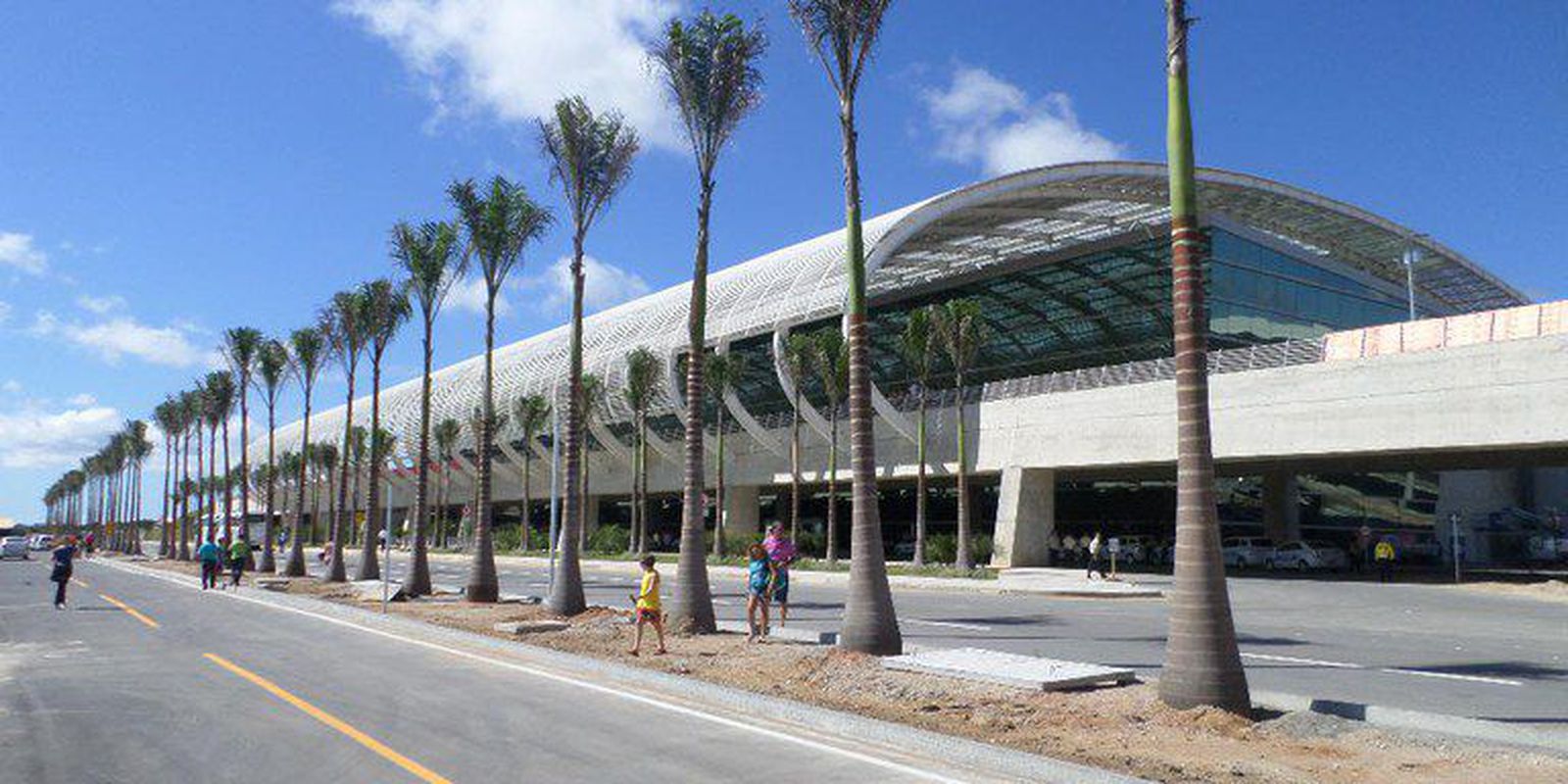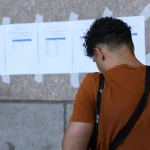The National Civil Aviation Agency (Anac) approved the rebidding of the São Gonçalo do Amarante Airport (ASGA), located in Rio Grande do Norte. The auction will be held on May 19. The process represents the first re-bid for a concessioned airport and should serve as a parameter for the re-bid for Viracopos and Tom Jobim – RIOgaleão airports. The São Gonçalo do Amarante airport unit was returned to the Union by the Inframérica concessionaire in 2020.
The airport in Rio Grande do Norte was the first granted to the private sector. The auction took place at BMF&Bovespa, on August 22, 2011, with the concession beginning on January 24, 2012, for a period of 28 years. It is located in the municipality of São Gonçalo do Amarante, in the metropolitan region of Natal and was inaugurated on May 31, 2014. The rebidding was approved yesterday (7).
The re-bidding processes at the international airports of Viracopos (SP) and Tom Jobim – RIOgaleão (RJ) continue to proceed normally, according to information provided to Agência Brasil by Anac.
With regard to Viracopos, the documents related to the re-bidding of the airport are still being analyzed by the Federal Court of Accounts (TCU). “As soon as the approval by the court occurs, the process will continue, with the publication of the notice and scheduling of the auction”, said Anac. The agency will forward to TCU the calculation of investments made at the airport and not yet amortized for compensation to the current concessionaire.
Located in the São Paulo municipality of Campinas, Viracopos International Airport was awarded to the private sector in an auction held at BMF&Bovespa on February 6, 2012. The winner of the auction was the concessionaire Aeroportos BRASIL – Viracopos SA, with the concession starting on July 11 2012, for a period of 30 years.
RIOgaleão
Regarding the Tom Jobim International Airport – RIOgaleão, ANAC informed that it is awaiting the elaboration of the Technical, Economic and Environmental Feasibility Studies (Evtea) of the airport, with a view to proceeding with the elaboration of the draft public notice and concession contract for submission to the public consultation and submission of the process to the TCU. “All those involved in the Galeão re-bidding process are talking to discuss the best possible solutions for Rio de Janeiro. The focus will always be on how to better serve the population and passengers in Rio, who need both Galeão Airport and Santos Dumont Airport”, said Anac.
Tom Jobim International Airport was awarded to the private sector in the 3rd Round, in an auction held at BMF&Bovespa on November 22, 2013. The winner of the bid was Concessionária Aeroporto Rio de Janeiro SA The concession began on May 7, 2014, with an expected term of 25 years.
The future of Tom Jobim International Airport, as well as Santos Dumont Airport, located in the central region of Rio de Janeiro and managed by the Brazilian Airport Infrastructure Company (Infraero), was debated on January 21, during a meeting between the mayor of Rio de Janeiro, Eduardo Paes, and the Ministers of Ports and Airports, Márcio França, and of Tourism, Daniela Carneiro. At the end of the meeting, it was informed that both the federal government and the RIOgaleão concessionaire were going to look for a way to reach an agreement that would be favorable to all.
The return process at Tom Jobim International Airport – RIOgaleão started on February 10, 2022.
goal
According to Anac, the purpose of granting airports is to attract investments to expand and improve the Brazilian airport infrastructure and, consequently, promote improvements in the service provided to air transport users in Brazil. The service quality levels determined for these airports, based on international standards, are provided for in the concession contracts, which are managed and supervised by ANAC.
As of 2017, in the 4th Concession Round, the airports were offered without the participation of Infraero. The first auction of this type took place on March 16, 2017, involving the international airports of Florianópolis (SC), Porto Alegre (RS), Salvador (BA) and Fortaleza (CE).
in blocks
As of the 5th Round, the units began to be offered to the private sector in blocks. On March 15, 2019, the Southeast, Northeast and Midwest Block auctions took place.
In the 7th round, the concession project was updated with remodeling of the blocks and exclusion of Santos Dumont Airport (RJ), whose concession was rescheduled for the year 2023, in the 8th round, with the bidding being studied together with the Airport of Galeão, also in the capital of Rio de Janeiro, in view of the request for the return of the asset to the Federal Government of the international unit in Rio de Janeiro by the current concessionaire.
On August 18, 2022, the auction of three airport blocks was held at B3, totaling 15 units. Together, the 15 airports in the 7th round account for 15.8% of passengers in the Brazilian air transport market.
Balance
speaking to Brazil Agency, the coordinator of the Airport Infrastructure Regulation Committee of the Getulio Vargas Direito Foundation (FGV Direito), in Rio de Janeiro, Fernando Villela, said that the modeling of airport concessions in Brazil has undergone changes over time, or improvements. He highlighted that all the concessions that are being returned for re-bidding purposes were part of the first concession rounds in Brazil. Villela sees this as a positive because, as of 2017, none of the most recent grants have been returned.
In the evaluation of the coordinator of the FGV Direito Rio committee, in the first concessions, there was an overestimation of the flow of passengers and cargo transportation. “These concessions came in a context of great optimism in Brazil. It was before the World Cup, the Olympics. There was an expectation that Brazil would have a considerable increase in the flow of passengers, tourism and cargo. With this optimism and the overdimensioning of passenger and cargo transport, consequently the concessionaires at the time presented very aggressive bids in the auctions, which raised the cost of the concession”.
Over the concession period, the concessionaire needs to recover the initial investment, which is the grant. Only at Tom Jobim International Airport, in Rio de Janeiro, the grant, that is, the money to be paid to the Union, was around R$ 17 billion to R$ 18 billion, said Villela.
The coordinator pointed out that this optimism ended up not materializing in practice. What happened was that the concessionaires saw that, until the end of the contract, it would not be possible to recover the investment made during the auction (grant) and also the investments with works.
“The balance between how much was paid and what is needed in terms of passengers and cargo over the concession period to recover this investment has not been closed. These concessionaires decided to return the asset, which is the rebidding”.
Modeling
In addition to the economic factor and the overdimensioning of passenger and cargo transport, there was a third component that influenced the model of the concession contract, said the lawyer. The main difference between the modeling of the concessions of the first three rounds and the modeling of the fourth round onwards is that, until the third round, several investments should be made by the concessionaires, regardless of the flow of passengers.
As of the 4th round, the federal government and Anac amended the contracts, establishing that some investments would be mandatory, while others would only be mandatory from the moment the airport reached, annually, a certain number of transported passengers. This means that certain investments would have a demand trigger, to avoid unnecessary investment, which will not be able to be paid during the concession period.
This modeling change, which “is an economic rationale, or I will only invest if I need to, if the airport demands it, if there is a necessary flow of demand”, came from the 4th round, from 2017 onwards.
According to Fernando Villela, Brazil is one of the few countries in the world that was able to attract several renowned international operators, among which he mentioned Fraport and Vinci Airports, from France, Zurich Airport Brazil and Aena Brasil, from Spain, the latter the largest airport operator in the world. “And all of them from Round 4 onwards,” he stressed.
public services
Villela considers the rebidding a positive mechanism for the government to attract these international and also national operators with an interest in having the three airports that will be auctioned again and operating these units. He commented that, routinely, Brazilian airports under concessions win international awards, whether due to punctuality, infrastructure quality or sustainability.”We can see how this positively impacts society: infrastructure quality, operation quality, all of this improves public service to society”.
Fernando Villela defined that “the rebidding came to not point guilty”. He explained that the rebidding is an agreement between the government and the concessionaire that that concession contract is not very good, either because of the government or the concessionaire. “What matters is I want to give back. The government accepts the return, without major penalties or restrictions for the concessionaire that is leaving and, in exchange for that, there is a new, faster bid for a new company to operate that airport, based on a new contract”.
As the concessions made from 2017 have been successful, the expectation is that the new concessions will also be successful. “Rebidding is good for Brazil”, concluded Fernando Villela.
Crisis
Professor Elton Fernandes, from the Production and Transport Department of the Alberto Luiz Coimbra Institute for Graduate Studies and Engineering Research, at the Federal University of Rio de Janeiro (Coppe-UFRJ), assessed that it was not the new coronavirus pandemic that influenced the return from airports. “Before, the situation was already very bad. Unrealistic expectations were created, because air transport was already, from the beginning of 2000 until 2015, in the process of being emptied”.
Regarding the São Gonçalo do Amarante Airport, Fernandes said that it was a political concession and that the idea of transforming Rio Grande do Norte into the hub (strategic places for redistribution) of the Northeast failed. Regarding the Viracopos Airport, the return was motivated by the precarious handling of cargo, while Guarulhos greatly improved the handling of the cargo part, resuming a more efficient administration in the matter of cargo, said the professor.
With the recession starting in 2015, all businesses that were not sustainable in other states migrated to São Paulo, which led Guarulhos to grow and have more connections. “Even international flights started to appear, because from São Paulo you can go anywhere”.
















